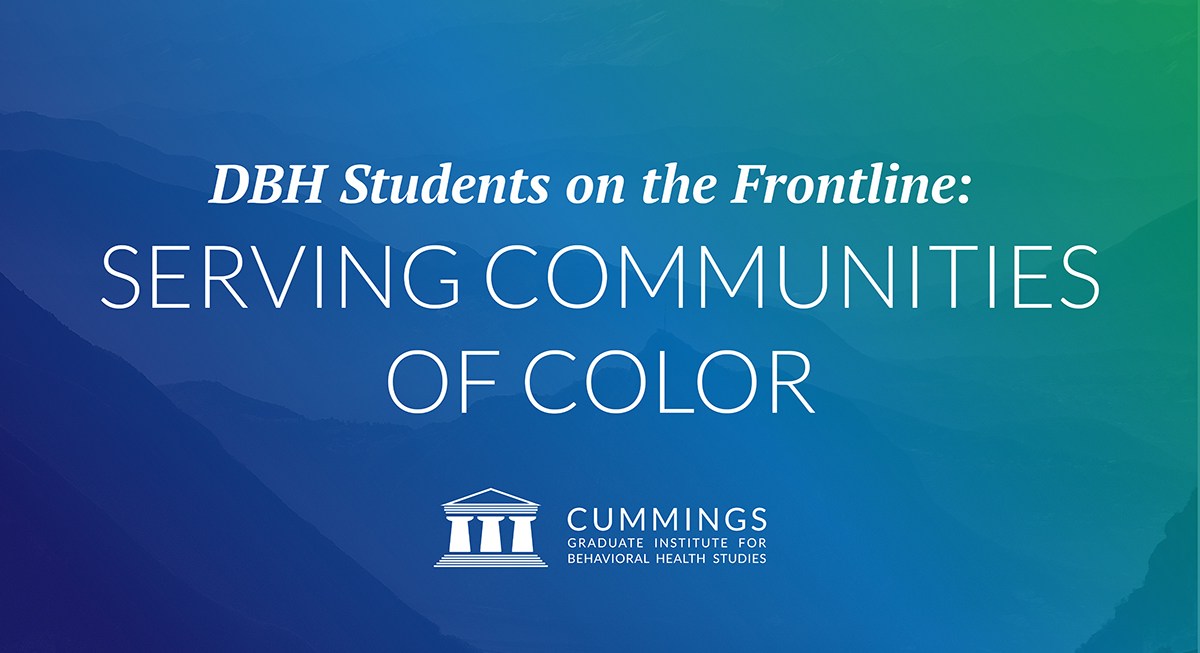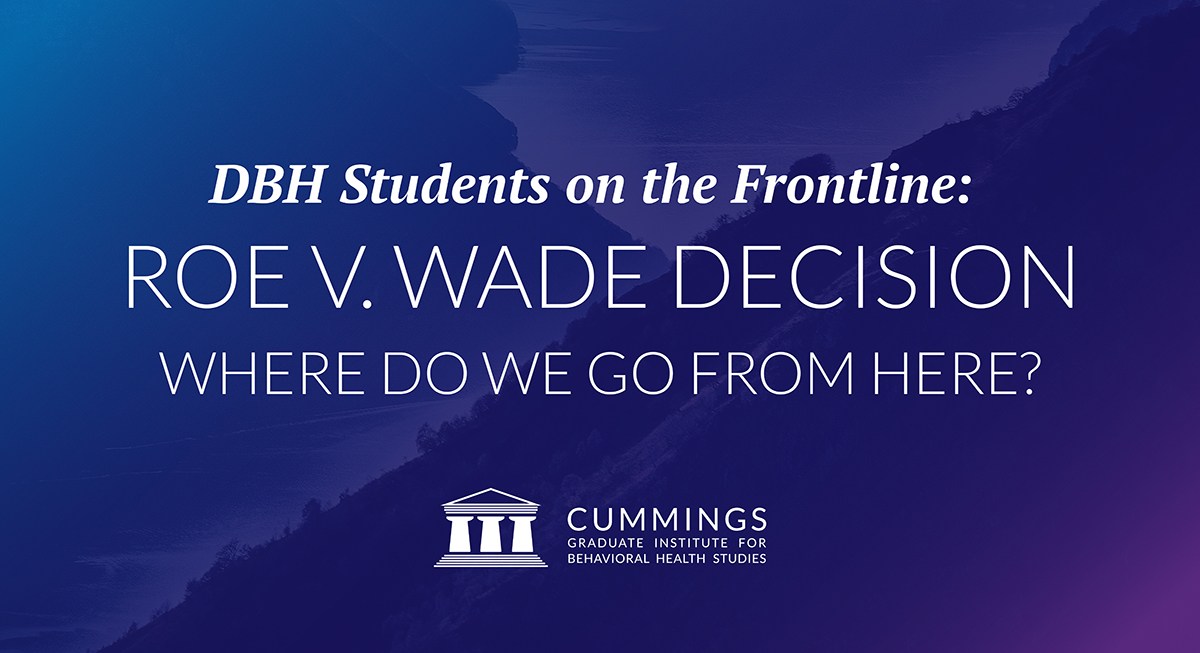 Navigating Trauma’s Complexities: Dr. Rhea Hill’s Vision for Equine-Assisted, Integrated, Trauma-Informed Therapy
Navigating Trauma’s Complexities: Dr. Rhea Hill’s Vision for Equine-Assisted, Integrated, Trauma-Informed Therapy
February 17, 2025
Dr. Rhea Hill’s journey in behavioral health is driven by a deep passion for understanding and addressing the connection between trauma and autoimmune disorders. With a strong foundation in psychology and mental health counseling, she has dedicated over 25 years to healing modalities, transitioning from a licensed massage therapist to mental health counseling, and ultimately to integrated behavioral health. After earning her Doctor of Behavioral Health from Cummings Graduate Institute for Behavioral Health Studies in 2024, Dr. Hill has focused her work on understanding the connection between trauma and autoimmune diseases, as well as the impact of equine-assisted therapy on treatment outcomes. Inspired by her own health journey following a systemic sclerosis/scleroderma diagnosis in 2010, she is now pioneering programs that integrate equine-assisted therapy with healthcare providers. With a vision to establish an equine-assisted treatment center specializing in women’s health and holistic care, Dr. Hill is paving the way for transformative advancements in behavioral health. In this interview, Dr. Hill discusses how the DBH program shaped her career path, broadened her expertise in integrated behavioral healthcare, and enhanced her perspective on effective leadership to drive meaningful advancements in behavioral health outcomes.
How has the DBH program transformed your understanding of behavioral health and influenced your career?

The Doctor in Behavioral Health (DBH) program has changed my understanding of the subject and career path. Before this academic journey, my knowledge of behavioral health was primarily theoretical, including essential ideas and methods. However, the DBH curriculum combined intense academic research with practical application, helping me understand behavioral health from multiple angles. Recognizing mental health as part of total health changed my perspective. The biopsychosocial model, which showed how biological, psychological, and social variables affect mental health, was stressed in the DBH curriculum. This comprehensive approach made me realize how complex human behavior is and how important it is to address mental health issues. Effective interventions must target the individual’s surroundings, relationships, and life experiences, not just symptoms. The curriculum also gave me enhanced evidence-based practice training to execute successful solutions. Studies methods and data analysis classes improved my critical thinking and allowed me to evaluate and apply behavioral health studies. This gave me the confidence to contribute to the field’s knowledge base through practice and research.
What innovative approaches or strategies do you believe have the potential to revolutionize the behavioral health landscape?
After the COVID-19 pandemic, telehealth has become essential for rural and underprivileged patients. Mobile apps offering CBT, mindfulness, and real-time mood tracking can empower people to manage their mental health actively beyond video sessions. Wearable gadgets that detect physiological signs like heart rate variability can alert users to mental health problems in time.
Physical, social, and environmental aspects affect behavioral health, and integrating mental health with basic care can meet all individual needs. Collaboration between behavioral health professionals and primary care clinicians improves communication and treatment. Community dynamics influence behavioral health concerns, and innovative community-based peer support and outreach programs help fill care shortages. Training community members as mental health advocates can eliminate stigma and provide vital support.
Preventive education is key to changing behavioral health, and school and workplace mental health awareness programs can teach people how to cope before problems emerge. Policy advocacy and systemic change are essential for increasing mental health insurance coverage, community mental health financing, and primary care behavioral health integration.
Researching new therapies, such as equine-assisted therapies, can lead to new treatments for PTSD and severe depression. Strong research methodologies and ethical frameworks are needed to understand and use developing medicines. To transform mental health, technology, care integration across disciplines, community involvement, and push for systemic change are necessary.
Looking back at your DBH journey, what specific insights or skills have you gained that have been instrumental in your professional development?
My experience in mental health (DBH) has given me many insights and skills that have molded my career. This path has enhanced and transformed me, helping me comprehend and handle mental health issues. Cultural competency in mental health was one of the things I learned the most. I realized from my experiences that cultural, social, and economic settings strongly influence mental health difficulties. My practice has benefited from understanding varied perspectives and client cultures. This information has improved therapy interactions by enhancing communication and trust. I now see that cultural humility—acknowledging one’s limits in understanding others’ experiences—is necessary for courteous and effective care.
I have excellent interpersonal skills and cultural competence for client involvement. I base client relationships on active listening, empathy, and validation. Creating a safe, non-judgmental atmosphere where people feel heard has transformed healing. I’ve learned that open-ended questioning and reflecting feelings empower clients and encourage self-discovery.
Developing clinical evaluation abilities has also helped me progress. I can evaluate customers’ mental health issues thanks to my skill in numerous assessment tools and methods. I use interviews, self-reports, and standardized assessment data to create customized treatment programs. This analytical approach has improved my capacity to identify underlying issues and offer appropriate remedies, improving patient outcomes. Working with social workers, counselors, psychiatrists, and community organizations has enabled a more comprehensive approach to patient care. It has also highlighted the significance of lobbying for organizational, systemic changes to increase service access and quality.
Working in mental health may be emotionally draining, so I’ve learned to take care of myself to help others. Regular supervision, social support, and mindfulness help manage stress and prevent burnout. My DBH experience taught me cultural competency, interpersonal skills, clinical evaluation, evidence-based practices, collaborative care, and self-care. These factors have improved my professional skills and reinforced my dedication to helping mental health patients.
What are your future career goals within the behavioral health sector and how do you envision the DBH program contributing to your success?
My future career goals within the behavioral health sector are deeply rooted in my passion for understanding the complexities of trauma and its physical manifestations, particularly concerning autoimmune diseases. I am particularly interested in exploring the underlying factors that contribute to these conditions, especially among trauma survivors. My aim is to advance my understanding and contribute to the collective knowledge within the field, ultimately helping to develop more effective interventions for those affected.
In addition to my research interests, I envision establishing an inclusive equine-assisted therapy center. This center would provide specialized services for individuals aged nine and above, emphasizing addressing women’s health issues. Women face unique challenges in mental and behavioral health, and I am committed to creating a safe, supportive environment where they can explore innovative therapeutic options. Equine-assisted therapy, in particular, holds great promise as it combines physical activity, emotional connection, and a unique form of engagement that can foster significant healing experiences. Ultimately, my goal is to establish a legacy of healing that empowers trauma survivors, particularly women, to reclaim their health and well-being through accessible, holistic therapies.
How do you view the role of leadership in advancing behavioral health outcomes, and in what ways has the DBH program prepared you for leadership positions?
Leadership drives behavioral health results by articulating the vision, promoting cooperation, and executing innovative solutions to complicated problems. Behavioral health providers help organizations handle policy advocacy, community involvement, and care integration concerns that affect mental health services. DBHs must inspire and motivate teams to achieve a common goal. Leaders must promote teamwork, inclusivity, and diversity because diverse perspectives improve problem-solving and innovation. The DBH program taught me the value of transformational leadership. Self-awareness and empathy help me support clients and coworkers, improving outcomes and satisfaction.
Effective local, state, and federal advocacy is needed to improve mental health outcomes. The DBH program taught me about healthcare policy and the socioeconomic determinants of health. As a result, I can effectively advocate for neglected groups and influence policymaking. The degree teaches behavioral health leadership ethics and emphasizes ethical decision-making, giving me the foundations to handle these circumstances appropriately.
Collaboration is another key to behavioral health leadership. Modern mental health issues require a multidisciplinary approach involving healthcare experts, organizations, and community resources. My DBH education stresses collaborative care approaches and allows me to build cross-sector alliances. Learning to connect with varied stakeholders will help me form strong coalitions that improve service delivery and provide comprehensive support networks.
DBHs must also actively promote evidence-based approaches and quality improvement. I’m committed to lifelong learning and data-driven decision-making. I can lead projects that meet client goals and advance the field by examining outcomes and modifying treatments based on empirical evidence. My training has enabled me to implement client-centered care plans that are flexible and responsive to individual needs.
What advice would you give to prospective students or professionals considering the DBH program?
Before starting your DBH program, know your motivation and career goals. Consider how this degree fits your interest for behavioral health and systemic change. Your educational experience will depend on your ambitions, whether you want to work in clinical settings, policy development, or community participation.
Building relationships during your studies can broaden your connections. Use opportunities to collaborate with instructors. Their advice can help you manage the field’s intricacies. In addition, peer connections can promote cooperation, support, and shared learning throughout your program.
Behavioral health requires both theoretical and practical knowledge. Look for conference opportunities or applied projects linked to your interests. This practical experience will strengthen your studies and create networking possibilities. Real-world scenarios bridge theory and practice, preparing you for future challenges.
Behavioral health leaders must develop leadership abilities. Develop leadership and teamwork through courses or extracurriculars. Strong leadership may inspire change and promote collaboration and creativity in organizations, benefiting the communities you serve. Public policy affects behavioral health. Stay current on the latest laws, advocacy efforts, and industry trends. Understanding the policy landscape can help you advocate for systemic changes that increase access to mental health care and reduce disparities.
Dr. Rhea Hill’s journey—from hands-on healing modalities to groundbreaking research in trauma and autoimmune disorders—exemplifies how the Doctor of Behavioral Health program can expand expertise, enhance leadership preparedness, and inspire transformative change. Her vision for equine-assisted therapy, combined with her dedication to integrated behavioral health, is reshaping how providers approach holistic healing. As she continues to turn her visionary ideas into reality, her work serves as a shining example of innovation, compassion, and resilience. Dr. Hill’s story is a testament to the power of perseverance and the limitless potential of behavioral health professionals to create meaningful, lasting change. For aspiring Doctors of Behavioral Health and leaders within the field of healthcare, her path serves as both inspiration and a call to action—reminding us all that the future of healthcare is built by those who dare to think differently and lead with purpose.
Connect with Dr. Rhea Hill
Instagram: @iamdrrhea and @blissedbeing
Facebook: @blissedbeing
LinkedIn: Dr. Rhea Hill
Website: www.blissedbeing.com
Dr. Rhea Hill on Making an Impact with Her DBH Degree
Check Out Dr. Rhea Hill on the Disruptors at Work Podcast

Disruptors at Work: an Integrated Care Podcast, episode: DBH Students on the Frontline: Serving Communities of Color with Rhea Hill, DBH, LPC, Shadiase Jack LCSW-C, Jerrika Henderson, Clinical Mental Health Counselor, CDR Sean K. Bennett, LCSW, MSWAC, BCD, Jennifer Wims-Madden, MSN, PMHNP-B, and Napoleon Harrington MA, LPC.
 Disruptors at Work: an Integrated Care Podcast, episode: DBH Students on the Frontline: Roe v. Wade Decision – Where do we go from here? with Jeny Rodrigue, LAC, SAP, SAE, Shadiase Jack LCSW-c, Jerrika Henderson, MA, Clinical Mental Health Counseling, Rhea Hill, DBH, LPC, CDR Sean K. Bennett, LCSW, MSWAC, BCD, and Pauline Tolentino Pablo, BCBA, IBA.
Disruptors at Work: an Integrated Care Podcast, episode: DBH Students on the Frontline: Roe v. Wade Decision – Where do we go from here? with Jeny Rodrigue, LAC, SAP, SAE, Shadiase Jack LCSW-c, Jerrika Henderson, MA, Clinical Mental Health Counseling, Rhea Hill, DBH, LPC, CDR Sean K. Bennett, LCSW, MSWAC, BCD, and Pauline Tolentino Pablo, BCBA, IBA.





























